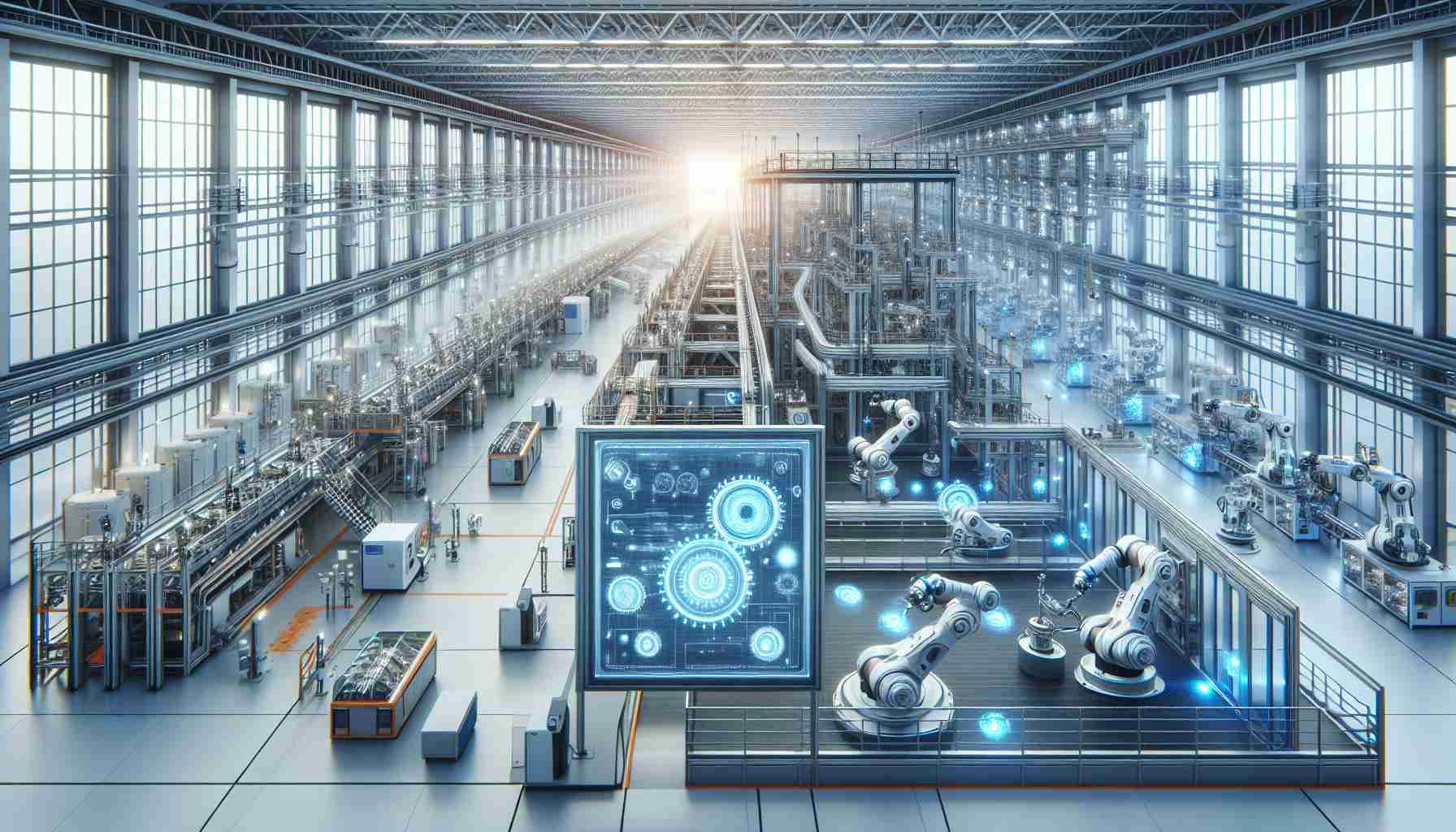
Xiaomi’s CEO Takes Lead in Smart Factory Innovation
Xiaomi’s CEO, known for his entrepreneurial spirit, recently announced the grand opening of a cutting-edge smart factory in Beijing, marking a significant move towards smart manufacturing. Referred to as “雷厂长,” the CEO proudly embraces the transformation that these factories symbolize.
Unveiling the Future of Manufacturing
The factory, with a total investment of $3 billion and spanning over 81000 square meters, is set to produce Xiaomi’s flagship smartphones. The highly automated facility boasts advanced technologies, including a self-developed equipment lineup, demonstrating Xiaomi’s commitment to innovation.
Pioneering Automation and Intelligence
With an impressive capacity of over 10 million units annually, Xiaomi’s new generation smart factory signifies a pivotal shift towards automation and intelligence in production. The facility, recognized as a national benchmark in smart manufacturing, will be instrumental in producing Xiaomi’s upcoming foldable screen smartphones.
Transforming Industry Standards
The factory features 11 smartphone production lines and automotive electronic component lines, highlighting Xiaomi’s diversification into various sectors. The high level of automation and digitalization sets a new standard for smart factories nationwide, emphasizing efficiency and productivity.
Driving Forward with Smart Operations
In addition to manufacturing advancements, Xiaomi is also focusing on smart operations, integrating multiple AI applications into the production process. This holistic approach streamlines operations, enhances efficiency, and ensures quality control throughout the manufacturing stages.
Redefining Excellence in Manufacturing
Xiaomi’s foray into smart factories not only secures its position in the global smartphone market but also sets a precedent for the future of manufacturing. By establishing state-of-the-art facilities, Xiaomi is poised to revolutionize industrial practices and bolster regional competitiveness.
Empowering Innovation and Growth
The successful launch of Xiaomi’s smart factories reflects a strategic shift towards self-sufficiency and innovation, challenging traditional assembly-based models. As Xiaomi continues to expand its production capabilities, the company’s vision for technological excellence shines brighter than ever.
Expanding Horizons: Xiaomi’s Smart Factories and Beyond
As Xiaomi propels forward in the realm of smart factory innovation, additional noteworthy dimensions are emerging that shed light on the company’s trajectory. Let’s delve deeper into the landscape of smart manufacturing to uncover insights that complement the existing narrative.
What novel technologies enhance Xiaomi’s smart factories?
One crucial aspect that has not been explicitly addressed is the integration of Internet of Things (IoT) devices within Xiaomi’s smart factories. These interconnected devices facilitate real-time monitoring and data analysis, optimizing operational efficiency and predictive maintenance strategies.
Are there sustainability initiatives embedded within Xiaomi’s manufacturing processes?
Xiaomi’s commitment to sustainability is exemplified through initiatives such as energy-efficient production methods and waste reduction measures. Implementing eco-friendly practices not only aligns with environmental responsibilities but also resonates with consumers increasingly conscious of green manufacturing practices.
Key Challenges and Controversies: The Road Ahead
Challenges could arise in the form of cybersecurity threats targeting interconnected smart factory systems. Ensuring robust cybersecurity protocols and training employees to detect and mitigate potential risks are imperative for safeguarding sensitive manufacturing data.
Advantages and Disadvantages of Smart Factories
The advantages of smart factories, like those established by Xiaomi, include heightened productivity, minimized downtime, and improved quality control. However, potential disadvantages may entail high initial investment costs, the need for skilled labor to operate advanced technologies, and potential job displacement due to automation.
The Path Forward: Innovation and Collaboration
Moving beyond the horizon of smart factories, Xiaomi’s exploration into collaborative robotics, artificial intelligence, and machine learning presents a glimpse into the future of interconnected manufacturing ecosystems. Collaboration with industry partners and universities can fuel innovation and knowledge exchange, fostering sustained growth and technological advancement.
Embracing a Future of Connectivity and Progress
Xiaomi’s leap into smart factories not only propels the company into the vanguard of technological prowess but also amplifies the discourse on the future of manufacturing. By addressing pertinent questions, navigating challenges, and harnessing opportunities, Xiaomi paves the way for a future where innovation and connectivity converge to reshape industry norms.
Suggested Related Links:
Official Xiaomi Website
